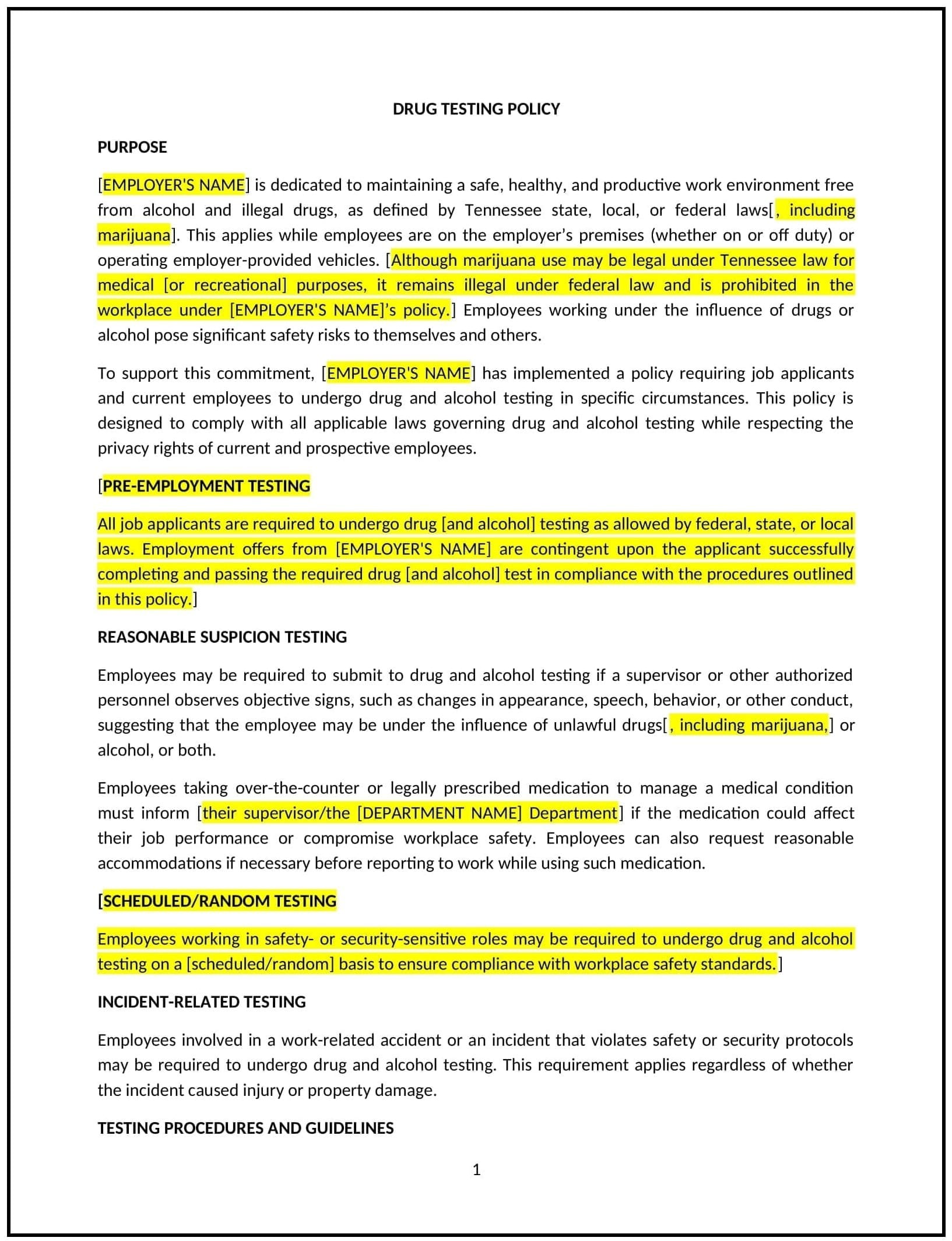Got contracts to review? While you're here for policies, let Cobrief make contract review effortless—start your free review now.

Customize this template for free
Drug testing policy (Tennessee)
This drug testing policy is designed to help Tennessee businesses establish guidelines for maintaining a safe and drug-free workplace. It outlines procedures for pre-employment, random, and post-incident drug testing to ensure employee safety and productivity.
By adopting this policy, businesses can reduce workplace accidents, promote a healthy work environment, and align with industry standards for safety.
How to use this drug testing policy (Tennessee)
- Define testing types: Specify when drug testing will occur, such as pre-employment, random, or post-incident.
- Set testing procedures: Outline steps for conducting drug tests, including sample collection and laboratory analysis.
- Address consequences: Explain the consequences of a positive test result, such as suspension, termination, or rehabilitation programs.
- Train managers: Educate supervisors on enforcing the policy and handling test results confidentially.
- Review and update: Assess the policy annually to ensure it aligns with evolving business needs and legal standards.
Benefits of using this drug testing policy (Tennessee)
This policy offers several advantages for Tennessee businesses:
- Enhances workplace safety: Reduces the risk of accidents caused by impaired employees.
- Promotes productivity: Ensures employees are fit to perform their job duties effectively.
- Supports a healthy environment: Demonstrates a commitment to employee well-being and safety.
- Reduces liability: Minimizes risks associated with workplace incidents involving impaired employees.
- Aligns with industry standards: Supports a structured approach to maintaining a drug-free workplace.
Tips for using this drug testing policy (Tennessee)
- Communicate the policy: Share the policy with employees and include it in the employee handbook.
- Provide training: Educate managers on enforcing the policy and handling test results confidentially.
- Monitor compliance: Regularly review testing procedures and results to ensure adherence.
- Address issues promptly: Take corrective action if drug-related incidents occur.
- Update regularly: Assess the policy annually to ensure it aligns with evolving business needs.